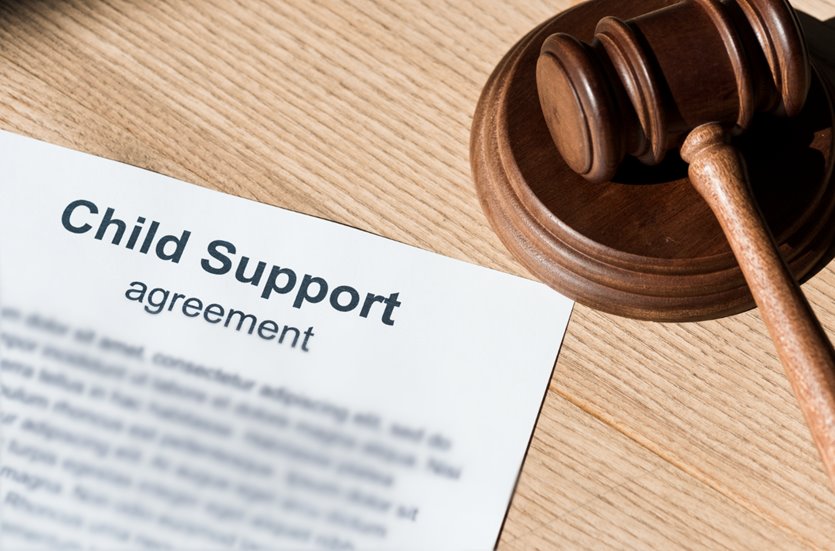Child Support Payments and Payment Enforcement in Nebraska
Share this:
The impact of divorce or separation is felt by more than just the couple in the relationship. If the couple has children, they will be deeply impacted by the separation. The impact of separation or divorce on children is emotional, psychological and financial. Nebraska’s child support laws are designed to allocate financial responsibility fairly between the parents while prioritizing the best interests of the children. Below, we discuss how child support payments are allocated, who pays and what actions can be taken if payments are not made as required.
Child Support Overview
Child support in Nebraska awarded with the intention of ensuring that the children’s basic needs are covered. These include food, shelter, education, clothing and medical care (i.e. out of pocket costs as well as insurance premiums).
How is Child Support Determined in Nebraska?
When parents separate or divorce, the parent that is awarded physical or primary custody (i.e. the parent that is responsible for the care of the children more frequently) spends more time with the children. This parent is considered to spend more on the children because they are the primary caregiver to the children. Therefore, in Nebraska, the other parent (the non-custodial parent) is required to pay child support as their financial contribution towards the care of their children. This ensures that each parent pays their fair share towards the expenses involved in raising the children.
The amount that ought to be paid as child support is based on various factors. These include:
- The income of both parents
The court considered the income of both parents in order to determine how much the non-custodial parent ought to contribute as child support. The court considered all income including wages, bonuses and commissions.
What if the parent is not working or chooses not to work? Some parents try to avoid child support payments by refusing to work or by working fewer hours or less frequently. However, Nebraska courts have the ability to impute income. This means that the court will determine what the parent ought to be earning using factors such as education, training and employment history.
- The child’s needs
The court will also consider the needs of the children. Some specific needs that are considered include educational expenses, healthcare costs and other special needs.
- Parenting time
The court will consider the amount of time each parent spends with the child. This includes visitation and custody arrangements. This is because the amount of time spent with the children will influence the amount of money each parent spends on the children.
Nebraska applies a formula to calculate child support payments. This is often referred to as Nebraska Child Support Guidelines. This formula considers all the factors outlined above. It takes the combined income of both parents and assigns a proportionate share of financial responsibility to each parent. It aims to ensure that the children receive adequate financial support based on their parents’ resources.
Enforcement of Child Support Payments
In a perfect world, all parents would meet their responsibilities to their children. However, the world isn’t perfect and not all parents comply with their child support orders. When a parent fails to pay their fair share, a unit within The Nebraska Department of Health and Human Services known as Child Support Enforcement (CSE) will take action to enforce child support payments. There are several mechanisms applied by this unit to enforce the payments. These include:
- Withholding income – This is the most common method for enforcing payments. Payments are deducted automatically from the wages of the paying parent or other income sources.
- Being held in contempt of court – if a parent consistently fails to pay child support, a motion can be filed by the custodial parent for contempt of court. This could result in penalties such as fines, suspension of licenses such as driving licenses or in extreme cases, the defaulting parent may be imprisoned.
- Modification of support orders – if there are significant circumstances such as in increase in expenses because of a health condition impacting the child or job loss, either of the parents can request a modification to the child support orders. The court may allow modifications to reflect the current situation.
- Intercepting tax refunds or placing liens on the defaulting parent’s property.
The CSE may also refer to the federal government to enforce child support orders across state lines. For example the Federal Parent Locator Service (FLPS) can assist in locating a defaulting parent across state lines.
What You Can Do If Your Ex is Not Paying their Fair Share
If your ex isn’t paying child support as ordered by the court, you can take the following steps:
- Keep detailed records of all missing payments, communications (and communication attempts) as well as any other relevant information.
- Contact the CSE and report the non-payment.
- Consult with an experienced family law attorney who can advise you on the best course of action and help you navigate the legal process.
- File a motion for contempt of court to enforce the child support order.
Child support payments are vital for the financial stability and well-being of the children following a separation or divorce. Contact our law firm to schedule consultation with an experienced family law attorney and learn about your rights and options when it comes to child support.

Child Support Payments Nebraska
A great way to reach us!

